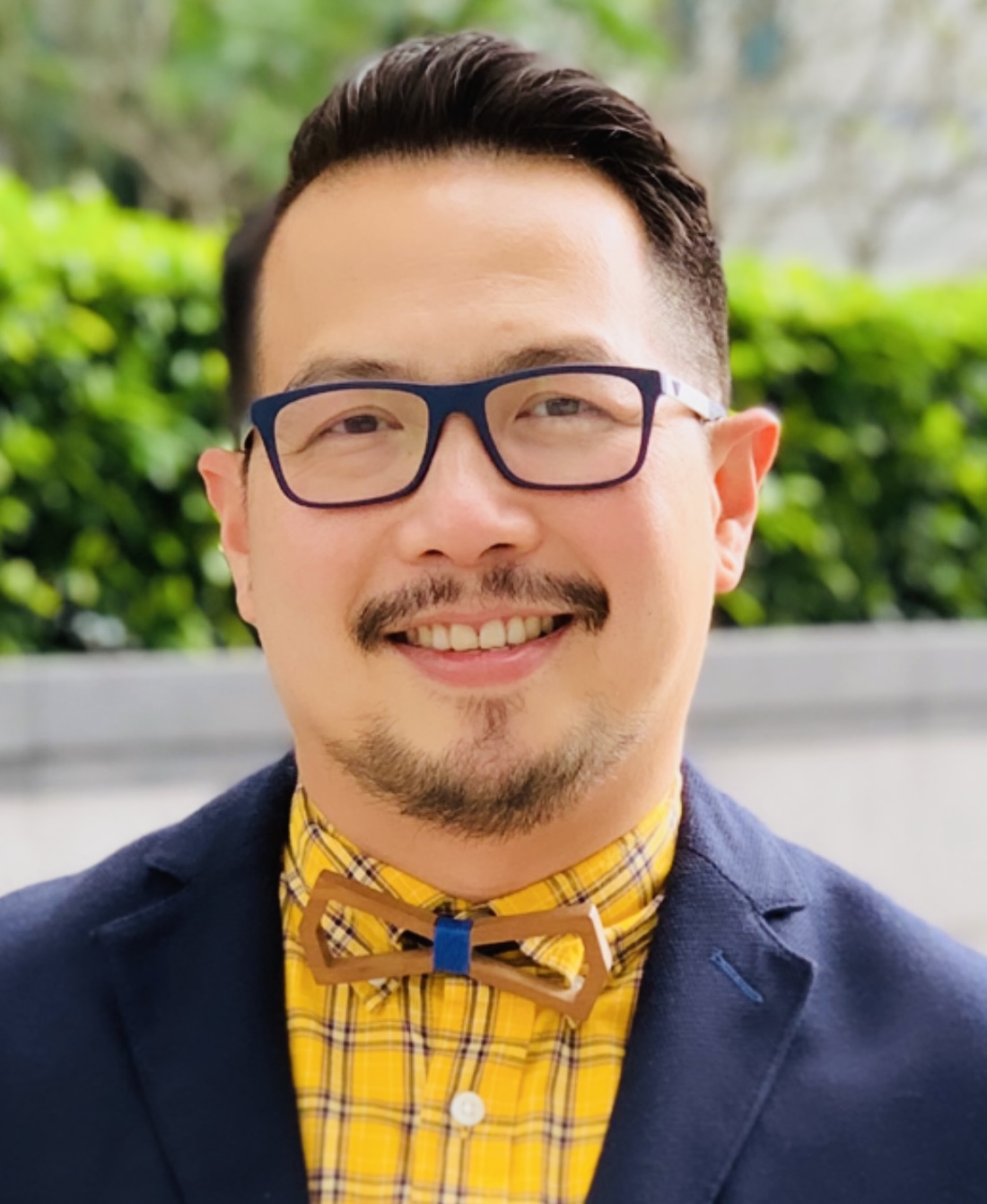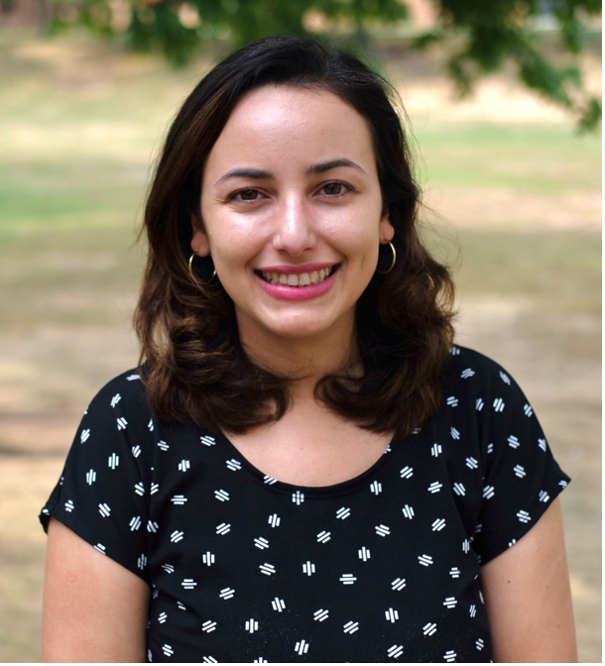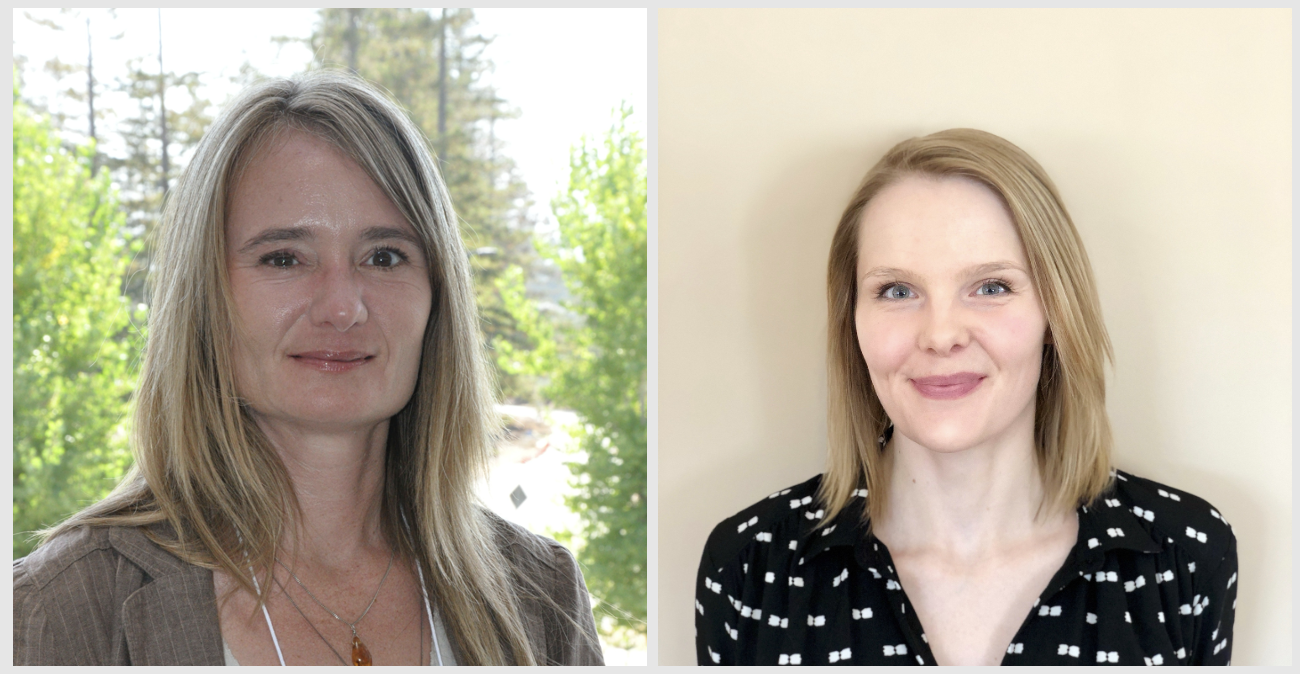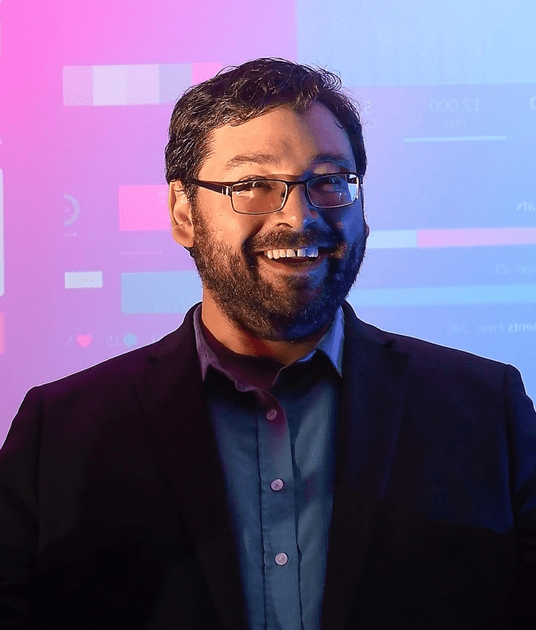Researching the Language and Use of
Generative AI
|
2024 Technology for Second Language Learning Conference October 24-26, 2024 |
 |
Plenary Speakers
Ron Darvin
Generative AI, digital literacies and language learning online
Watch the plenary presentation
Abstract: Recognizing digital literacy as a social practice, this presentation examines how the use of generative AI (GenAI) technologies for language learning is contextual and situated, developed through interactions with devices, platforms, and cultures-of-use (Thorne, 2016) and shaped by issues of power. As learners navigate AI platforms, construct prompts and evaluate generated responses, how they are able to achieve their intentions online determines the affordances and constraints of these tools. GenAI however is a black box, and the processes through which output is produced are opaque and complex, dependent on large datasets hidden from view, and governed by the interests of their developers. The extent to which learners are able to exercise agency depends on their capacity to assemble and interpret linguistic and semiotic resources online, while negotiating platform designs, algorithms, norms and conventions.
Informed by theories of platformization (Poell, Nieborg and van Dijck, 2019), programmed sociality (Bucher, 2018), and materialist semiotics (Blommaert, 2013), this presentation argues that the pathway to agentive GenAI use is critical digital literacy. Drawing on insights from a study of the GenAI practices of secondary school students in Canada, it demonstrates how learners develop contrasting dispositions towards GenAI tools, and how the designs of GenAI platforms and their sociotechnical structures (Darvin, 2023) can steer learners towards specific digital literacy practices. Various inequalities circumscribe the use of these tools: from the disparities between free and premium platform versions and mobile vs. laptop access, to the unequal ways these tools recognize low-resource vs. high-resource languages. To address these issues, learners need a critical lens to develop an awareness of how platform designs and output index specific ideologies and interests, and to determine the place of these technologies in the production, consumption, and legitimation of knowledge.
 Dr. Ron Darvin is an Assistant Professor in the Department of Language and Literacy Education at the University of British Columbia in Vancouver, Canada. His research examines digital literacies, identity, and investment in language learning, particularly as these topics intersect with issues of materiality, ideology, and inequality. He has published in Language Learning & Technology, Computer-Assisted Language Learning, and Language Teaching, and served as a Co-Editor of the 2022 Special Issue of TESOL Quarterly on digital literacies. His research on the unequal digital literacies of migrant students in Canada received the 2020 Dissertation Award of the American Association of Applied Linguistics.
Dr. Ron Darvin is an Assistant Professor in the Department of Language and Literacy Education at the University of British Columbia in Vancouver, Canada. His research examines digital literacies, identity, and investment in language learning, particularly as these topics intersect with issues of materiality, ideology, and inequality. He has published in Language Learning & Technology, Computer-Assisted Language Learning, and Language Teaching, and served as a Co-Editor of the 2022 Special Issue of TESOL Quarterly on digital literacies. His research on the unequal digital literacies of migrant students in Canada received the 2020 Dissertation Award of the American Association of Applied Linguistics.
Read more about Dr. Darvin here.
Melinda Dooly
Generative AI in Language Learning: Genie in the Bottle or Devil in Disguise?
Watch the plenary presentation
Abstract: In the last year or so, the publicity surrounding AI in education has centered on its potential to personalize learning, automate administrative tasks, and provide intelligent tutoring systems that enhance student engagement and outcomes. However, fears have also emerged, including concerns about data privacy, the potential for increased inequality, the risk of over-reliance on technology and of course, Vox Populi also has AI ‘taking over’ the role of teaching and leaving millions of qualified teachers unemployed.
This talk aims to explore whether AI is the genie in the bottle or the devil in disguise by first considering, historically, the delicate balance between educational approaches and technology use, such as Project-Based Language Learning (PBLL) in Virtual Exchange (VE), before considering how we might position ourselves towards vanguard technology, including AI, within current and future learning ecologies. It will also provide examples of how AI can be used to enhance PBLL and VE as an innovative approach within current and future learning ecologies.
 Melinda Dooly holds the position of Serra Húnter Full Professor at the Universitat Autònoma de Barcelona. She is member of the Department of Language & Literature Education and Social Science Education, where she teaches and carries out research on language learning, intercultural communication, and 21st-century competences in teacher education. With a focus on technology-enhanced project-based language learning, Melinda has published in numerous international journals, chapters and books dedicated to advancing understanding in these areas. Melinda’s work extends beyond research; as the former and founding editor of the Bellaterra Journal of Teaching & Learning Language & Literature, and as co-editor of the book series Telecollaboration in Education published by Peter Lang, she has helped foster scholarly discourse and sharing knowledge within the academic community. At the Universitat Autònoma de Barcelona, Melinda serves as the lead researcher of GREIP: Grup de Recerca en Educació, Interacció i Plurilingüisme (Research Centre for Education, Interaction & Plurilingualism) and actively contributes to the governance and administration of her academic institution as Head of Studies and Coordinator of Doctoral Studies in the area of language and literature and Coordinator of the EFL Teaching Minor within the Department of Language, Literature & Social Science Teaching. She also serves as permanent panel member for the evaluation committee in education for the Spanish National Research Agency.
Melinda Dooly holds the position of Serra Húnter Full Professor at the Universitat Autònoma de Barcelona. She is member of the Department of Language & Literature Education and Social Science Education, where she teaches and carries out research on language learning, intercultural communication, and 21st-century competences in teacher education. With a focus on technology-enhanced project-based language learning, Melinda has published in numerous international journals, chapters and books dedicated to advancing understanding in these areas. Melinda’s work extends beyond research; as the former and founding editor of the Bellaterra Journal of Teaching & Learning Language & Literature, and as co-editor of the book series Telecollaboration in Education published by Peter Lang, she has helped foster scholarly discourse and sharing knowledge within the academic community. At the Universitat Autònoma de Barcelona, Melinda serves as the lead researcher of GREIP: Grup de Recerca en Educació, Interacció i Plurilingüisme (Research Centre for Education, Interaction & Plurilingualism) and actively contributes to the governance and administration of her academic institution as Head of Studies and Coordinator of Doctoral Studies in the area of language and literature and Coordinator of the EFL Teaching Minor within the Department of Language, Literature & Social Science Teaching. She also serves as permanent panel member for the evaluation committee in education for the Spanish National Research Agency.
Read more about Dr. Dooly here.
Larissa Goulart
GenAI or Student Writing? Taking a register approach to the human/machine language variation
Watch the plenary presentation
Abstract: Since the public release of OpenAI’s ChatGPT in November 2022, teachers and writing researchers have grappled with a central question: How will ChatGPT influence the writing classroom? While some scholars have explored its constructive applications, such as helping with brainstorming and providing feedback, others have scrutinized its potential to disrupt writing instruction, citing concerns such as plagiarism and hallucination. A key concern raised by skeptics is whether tools like ChatGPT, Copilot, and Gemini can be utilized (and to what extent) to complete writing assignments. This presentation adopts a register approach to address this question. I will present findings from two projects examining (1) situational and linguistic variation between student-generated and AI-generated responses to identical prompts, and (2) instructors’ perceptions of the distinctions between these two sources of writing.
The first project utilizes two distinct corpora: one composed of assignments authored by undergraduate linguistics majors, and the other composed of texts generated by ChatGPT in response to identical prompts provided to the students. Each text in both corpora was annotated for situational characteristics, including communicative purpose, setting, presence of abstracts, lists, headings, among others. Both corpora were annotated for lexico-grammatical features with the Biber Tagger and an additive multidimensional analysis was conducted to examine variation between AI-generated and student-generated assignments. The second project adopts a triangulation approach, where the perceptions of ESL teachers regarding both AI-generated and student-generated assignments was explored. This investigation involves comparing teachers’ perceptions of AI-generated texts with the findings of the linguistic analysis conducted in the first project.
 Larissa Goulart is an Assistant Professor of Linguistics at Montclair State University. Larissa holds a Ph.D. in Applied Linguistics from Northern Arizona University. At MSU, she coordinates the Laboratory for Applied Corpus Linguistics Research. Her research primarily focuses on undergraduate student writing, corpus-based approaches to register variation, and the applications of corpora to teaching. Her research has appeared on the Journal of English for Academic Purposes, Applied Corpus Linguistics, Corpora, Register Studies, among others. Larissa is currently associate editor of Register Studies. Her forthcoming book, “Variation in University Student Writing,” slated for release in the Fall of 2024 as part of the Studies in Corpus Linguistics series published by John Benjamins, examines how language varies across registers and disciplines in student writing. Larissa’s recent research involves a comparative analysis of undergraduate student writing and GenAI texts.
Larissa Goulart is an Assistant Professor of Linguistics at Montclair State University. Larissa holds a Ph.D. in Applied Linguistics from Northern Arizona University. At MSU, she coordinates the Laboratory for Applied Corpus Linguistics Research. Her research primarily focuses on undergraduate student writing, corpus-based approaches to register variation, and the applications of corpora to teaching. Her research has appeared on the Journal of English for Academic Purposes, Applied Corpus Linguistics, Corpora, Register Studies, among others. Larissa is currently associate editor of Register Studies. Her forthcoming book, “Variation in University Student Writing,” slated for release in the Fall of 2024 as part of the Studies in Corpus Linguistics series published by John Benjamins, examines how language varies across registers and disciplines in student writing. Larissa’s recent research involves a comparative analysis of undergraduate student writing and GenAI texts.
Read more about Dr. Goulart here.
Gary Ockey
Harnessing power of AI, the “most destructive technology since the atomic bomb was unleashed”
Watch the plenary presentation
Abstract: In May of 2024, in his John Hopkins commencement speech, Senator Mitt Romney stated that, AI is “the most destructive technology since the atom bomb was unleashed” and will be “100 times more powerful” in the coming ten years. Romney is not alone in his concerns. Some have suggested that we completely ban the use of (generative) AI in schools and even in other areas of society. However, other researchers and practitioners have largely ignored these concerns, jumping on the AI bandwagon, hoping to not be left behind. Some have suggested that because AI can produce language, including traditional academic essays, we no longer need to teach essay writing or even have writing classes. They argue that we should just teach students to use AI to produce the desired language.
In this talk, I hope to encourage researchers and practitioners, who are on both sides of the debate, to take a step back and think about what it is we want language learners to know and be able to do and how we can best assess these abilities. We then use this understanding as our guide for how to use AI. My main message will be that we should not be letting what generative AI can do guide what we actually do. Instead, we should be harnessing it to help us teach and assess language that is needed to be successful in particular target language use contexts.
My talk will be presented through the lens of construct-based language learning and assessment. I will discuss both traditional and developing language constructs and how we can use AI to teach and assess them. I will describe a few research projects, some of which are grounded in a Dynamic Assessment framework, with the aim of using generative AI to help seamlessly connect language learning and assessment to the abilities that language learners need to effectively communicate in particular target language use situations.
 Gary Ockey is Professor of Applied Linguistics and Technology at Iowa State University, USA. Professor Ockey currently teaches language assessment courses to graduate students and has previously taught English as a second or foreign language in elementary school, high school, university, and adult language schools in Asia and the US and worked at the Educational Testing Service. He has co-authored/edited several books and has been published in various journals, including Applied Linguistics, Language Learning, Language Assessment Quarterly, Language Testing, TESOL Quarterly, and the Modern Language Journal. He has also served as the editor of TOEFL Research Report Series and Language Assessment Quarterly. His current research interests relate to uses of technology, including AI, in assessing second language oral communication. His new book (September 2024), “Introducing second language assessment” with Cambridge University Press, emphasizes the importance of systematically evaluating technology and its effectiveness for helping to assess second language ability and learning.
Gary Ockey is Professor of Applied Linguistics and Technology at Iowa State University, USA. Professor Ockey currently teaches language assessment courses to graduate students and has previously taught English as a second or foreign language in elementary school, high school, university, and adult language schools in Asia and the US and worked at the Educational Testing Service. He has co-authored/edited several books and has been published in various journals, including Applied Linguistics, Language Learning, Language Assessment Quarterly, Language Testing, TESOL Quarterly, and the Modern Language Journal. He has also served as the editor of TOEFL Research Report Series and Language Assessment Quarterly. His current research interests relate to uses of technology, including AI, in assessing second language oral communication. His new book (September 2024), “Introducing second language assessment” with Cambridge University Press, emphasizes the importance of systematically evaluating technology and its effectiveness for helping to assess second language ability and learning.
Read more about Dr. Ockey here.
Kimberly Vinall & Emily Hellmich
Research, theory, and practice: Imagining AI technologies in language education
Watch the plenary presentation
Abstract: AI tools prompt language teachers to imagine new ways of teaching and require students to imagine new ways of learning. These imaginings open new possibilities, but they can also be anxiety-provoking, as they are still largely unknown. In this presentation, we give initial shape to these imaginings by combining practice with current research and theory.
More specifically, we chronicle the path from empirical research studies to tangible pedagogical materials, with AI language technologies at the center. In the first section, we report on key takeaways from several of our research studies on neural machine translation and generative AI tools (e.g., ChatGPT), including: a) the diverse teacher positionalities emerging technologies open and constrain, drawn from a mixed methods survey (n=165) and follow up interviews (n=11) with US-based university language instructors; b) the complexity of student use of neural machine translation tools, drawn from a computer-tracking study (n=74); and c) learner mediating beliefs that influence (non)use of generative AI tools to support language learning, drawn from a mixed method survey (n=175) of university language learners.
In the second section, we discuss how we used these takeaways, combined with applied language studies theory (i.e., digital literacies, ecological CALL), to imagine instructional materials that support critical and meaningful engagement with AI technologies in the language classroom. Specifically, we showcase a series of activities that target developing language learner understanding of tool use, tool functionality, and tool ethicality across proficiency levels.
Dr. Kimberly Vinall is the Executive Director of the Berkeley Language Center (BLC) at University of California, Berkeley. Her research focuses on the critical potentials of digital tools and the development of learners’ and instructors’ digital literacies, with a particular interest in related questions of authorship and knowledge production. Her current research, with Dr. Emily Hellmich, is a multi-phase project to document instructor perceptions of machine translation technologies and student use of these technologies. With publications in the fields of SLA and CALL, she has published articles in the Foreign Language Annals; Language Learning & Technology; Second Language Research and Practice; and Language, Curriculum, and Culture and chapters, most recently in the Encyclopedia of Applied Linguistics. She was also a co-guest editor of a special issue of the L2 Journal titled Machine Translation and Language Education: Implications for Theory, Research, and Practice.
Read more about Dr. Vinall here.

Dr. Emily Hellmich (PhD, University of California, Berkeley) is the Associate Director of the Berkeley Language Center at University of California, Berkeley. Her research focuses on the impacts of digital technologies on language, language use, and language education, with particular interest in how language learners use (and don’t use) digital technologies to support their language learning. Her work has appeared in diverse journals, including Alsic, CALICO, Computer Assisted Language Learning, Foreign Language Annals; and Language Learning & Technology. Her current research project, with Dr. Kimberly Vinall, is a multi-phase exploration of instructor perceptions of AI language technologies and student use of these technologies. She is also co-editor of L2 Journal, an open-access journal for language teaching and learning.
Read more about Dr. Hellmich here.
Eric York
Artificial Intelligence and the Technology of Humankind: A roadmap for critical AI integration
Watch the plenary presentation
Abstract: The sudden advent and rapid commercialization of large language models (LLMs) represents an inflection point in the progress of humankind, for artificial intelligence (AI) is not mere technological invention but a substantive upgrade in human capability. Ahead of us lies a steepening curve toward ever-more-generalized automation, and, more imminently, a communication revolution of historical proportion. As postsecondary educators and researchers in language-related fields, we are among those most exposed to the disruptive impact of AI, and prominent economists have warned we must “augment [ourselves] or be automated away” (Felten et al., 2023). At the same time, we find language to be more central to more conversations than ever before. If we must grow and change, and indeed we must, we cannot risk our values or our identity—so that is precisely the work that critical AI should be about. It must help us navigate the “jagged frontier” (Dell’Aqua et al., 2023) of AI advancement and chart a course into the uncertain future.
This talk presents a roadmap for critical AI integration in language studies and the humanities more broadly. Framing the development of AI as one of the most significant advancements in human history, this talk provides an update on the current state of research, focusing on the major points of concern for language studies in the near term and highlighting important ways that AI is already transforming how we live, work, and study. This roadmap details an agenda for incorporating AI technologies by fostering new literacies, developing new pedagogies and research methods, facilitating interdisciplinary collaboration, and revisiting the relevance of our work. Through these efforts, we can make meaningful contributions to the most consequential language technology since writing itself.
 Eric York is an Associate Professor of English at Iowa State University, where he teaches emerging technologies and design in the context of technical and professional communication. Dr. York’s scholarship focuses on the social and educational impacts of new technologies such as artificial intelligence and extended reality, and his work has received funding awards from the National Institutes of Health and the National Endowment for the Humanities. Dr. York has published in journals such as Communication Design Quarterly and Kairos: a Journal of Rhetoric, Technology, and Pedagogy, and has forthcoming publications in Computers and Composition and the Journal of Business and Technical Communication. Dr. York is also a practicing user experience designer and fullstack web developer and has authored numerous apps and websites.
Eric York is an Associate Professor of English at Iowa State University, where he teaches emerging technologies and design in the context of technical and professional communication. Dr. York’s scholarship focuses on the social and educational impacts of new technologies such as artificial intelligence and extended reality, and his work has received funding awards from the National Institutes of Health and the National Endowment for the Humanities. Dr. York has published in journals such as Communication Design Quarterly and Kairos: a Journal of Rhetoric, Technology, and Pedagogy, and has forthcoming publications in Computers and Composition and the Journal of Business and Technical Communication. Dr. York is also a practicing user experience designer and fullstack web developer and has authored numerous apps and websites.
Read more about Dr. York here.
Contact: tsll@iastate.edu